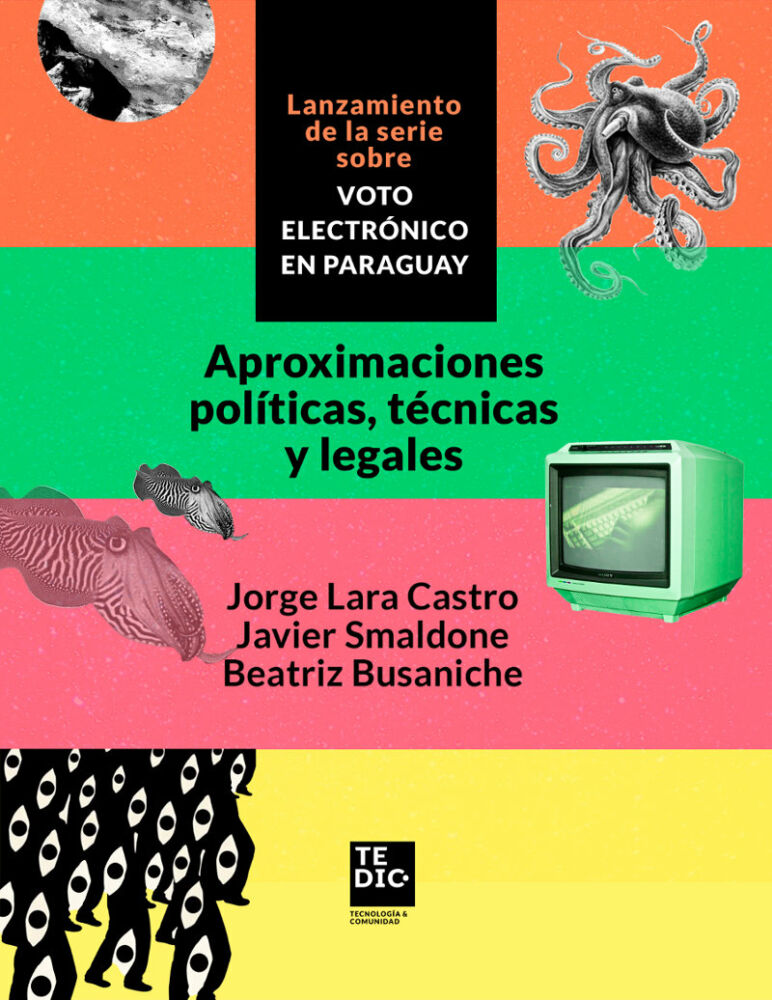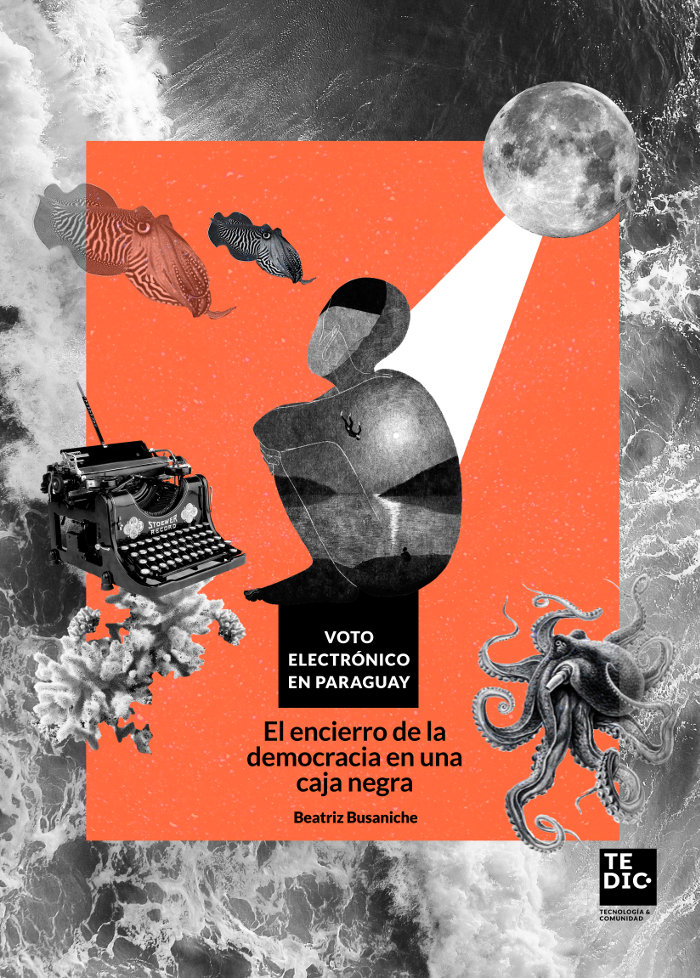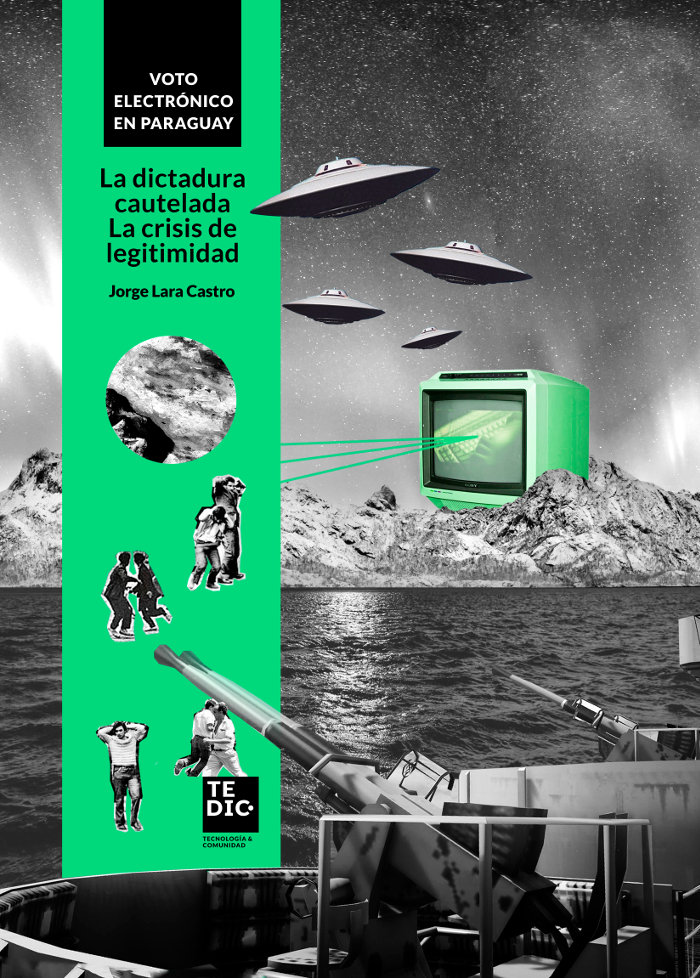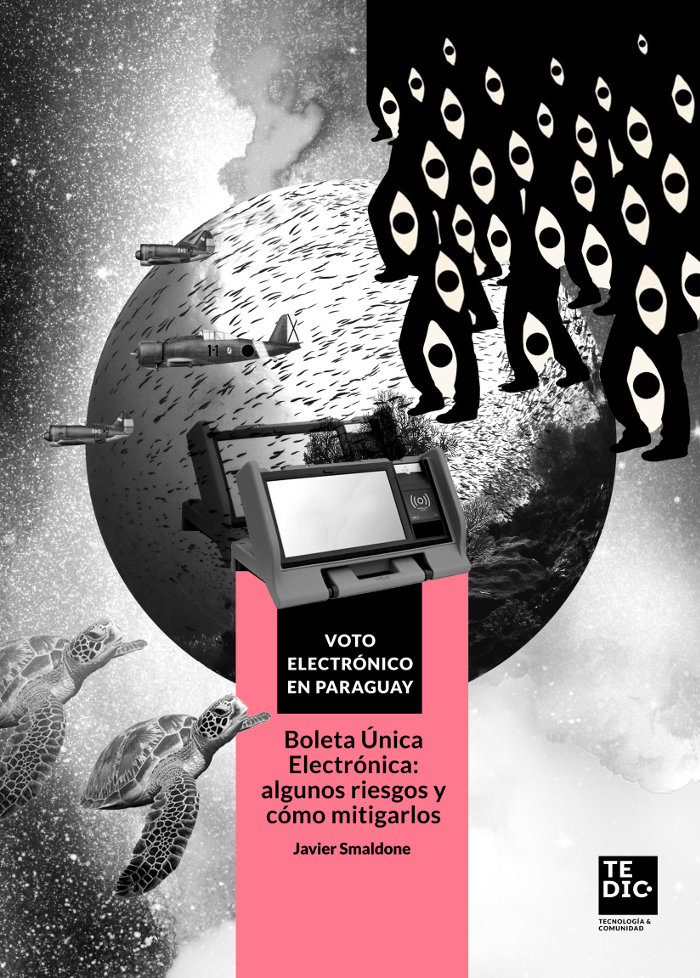
In recent years, TEDIC has carried out several actions on the implementation of electronic voting in Paraguay, with special focus on concerns about the implications of implementing this technology in the casting of votes in the electoral system, and its impact on the democratic system. Among these actions, this year TEDIC invited three experts to investigate in extenso this complex issue and produce three white papers.
This publication format seeks to develop a theoretical and philosophical framework on this issue to supply TEDIC’s actions with a theoretical basis, and a concise and extensive guide with a political, legal, philosophical, technical, and socio-cultural approach.
The first white paper, “El encierro de la democracia en una caja negra” (Democracy locked up in a black box), was written by Beatriz Busaniche. The author has a degree in Social Communication from the National University of Rosario, a Master’s degree in Intellectual Property from the Latin American Faculty of Social Sciences (FLACSO), and is a PhD Candidate in Social Sciences, also at FLACSO. She teaches undergraduate and graduate courses at the University of Buenos Aires and at FLACSO, and is President of Fundación Vía Libre, a non-profit organization that advocates fundamental rights in environments mediated by information and communication technologies. This report is focused on analyzing how important the role of a transparent, reliable and legitimate electoral system is, which is also accountable to its citizens.
Busaniche emphasizes: “In a historical period characterized by growing political polarization worldwide, instability of the region’s democracies, and mistrust in the political party system, the electoral system becomes a central element for the construction of solid, reliable institutional processes that restore the ability of citizens to build new institutional processes that reinforce democratic consensus.”
“La dictadura cautelada. La crisis de legitimidad” (The cautious dictatorship. The legitimation crisis) is the second white paper, written by Jorge Lara Castro, a professor of International Relations and History at the Faculty of Philosophy and Human Sciences of the Catholic University of Asunción, Paraguay; former Foreign Minister of Paraguay; former professor of Political Sciences at the National Autonomous University of Mexico (UNAM); and former professor/researcher in Mexico City.
The author’s approach focuses on Paraguay’s national situation, the legitimation crisis within our electoral system, and the Paraguayan state itself.
“The current legitimation crisis in progress arises from the historical limits of a model of democracy representing a type of structural relations of domination of an oligarchic state, which as a Party/State, has profoundly centralized political power and excluded real participation of the majorities in the process of socio-political democratization. A veritable electoral machinery for the production of social inequalities and injustice, highly profitable in the creation of power and wealth for the owners of the State’s power, and a legitimate basis for oligarchies in key sectors of the economy as political support. This relationship of the social structure, under the legal-political form of the social State of Law and its economic form of an agricultural-export productive organization, with the concentration of productive resources controlled by oligarchies, has been efficient during this historical period identified as a transition toward democracy. This has served to reproduce the structure of domination of the oligarchic state, based on the conceptual ideological legitimacy of a -formal- representative democracy.”
The third white paper is called “Boleta única electrónica: algunos riesgos y cómo mitigarlos” (Single electronic ballot: Some risks and how to mitigate them), written by Javier Smaldone, a software developer and consultant, specialized in the use of computer science in electoral systems.
This report focuses on a technical analysis of electronic voting machines, the author’s experience with MSA – Argentina machines, and his concerns about electoral fraud risk arising from the use of outdated machines in the Paraguayan electoral system.
The summary of this publication’s launch can be seen on TEDIC’s YouTube channel.





 Starlink in Paraguay: are there risks or concerns about this technology?
Starlink in Paraguay: are there risks or concerns about this technology?